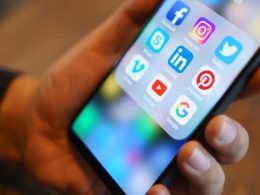An investigation carried out by Facebook has revealed that around 1 in 8 of the 2.9 billion users of the social network have problems similar to addiction, according to the report’s findings.
This addiction is accompanied by problems that affect the sleep, work, parenting or relationships of the users. Facebook euphemistically calls these problems ‘problematic use’, but in the world at large it is more commonly referred to as ‘internet addiction’.
Users “perceive that usage patterns are worse on Facebook than on any other major social media platform, and they all want users to come back,” according to the report, published by the Wall Street Journal .
They investigate whether the diversion and flight of the plane at the Palma airport was conceived on Facebook from Morocco
This information was contained in documents leaked to this medium, reports based on internal documents provided by former company employee Frances Haugen, who testified before the United States Congress last month.
The absolute figures imply that these addiction problems affect 12.5% of Facebook users or what is the same, more than 360 million people worldwide.
Addiction is not homogeneous throughout the world. Researchers estimated that about 10% of US users are addicts, and the numbers are believed to be as high as 25% in the Philippines and India , the “company’s largest market.”
Research on how the use of social media could negatively affect people’s daily lives began several years ago with the idea of mitigating any harmful behavior that the company identified.
The researchers noted how some users lacked discipline in the amount of time they spent on Facebook. “Activities like shopping, sex and using Facebook, when they are repetitive and excessive, can cause problems for some people,” the report says.
“Activities like shopping, sex and using Facebook, when they are repetitive and excessive, can cause problems for some people”
These issues included things like lost productivity in people who couldn’t complete tasks in their own lives due to the amount of time they spent on Facebook.
Other users reported lack of sleep due to nighttime use. In some cases, “parents focused more on Facebook than on caring for or bonding with their children,” the researchers wrote.
The researchers noted that not only was Facebook being used compulsively, but a variety of other social media apps, including Instagram and WhatsApp , which are owned by parent company Meta.
Twitter and Snapchat were also mentioned, and users felt pressure to reply to messages and constantly search for new content on their smartphones.
This is how addiction is caused
Various app features would trigger addictive use, including red dots that alert you when new content is available to click.
Automatically playing videos were also found to be another factor that made it difficult to quit the app. Facebook has settings that allow users to turn off notifications and auto-play videos, but they’re not easy to find.
A Facebook ‘user wellness team’ suggested several solutions to curb ‘problematic use’, some of which were implemented. One measure that was suggested and later introduced was to reduce the frequency of user notifications and create tools that would encourage people to take breaks.
The company’s position
Ultimately, the team that made the suggestions to reduce such addiction problems was disbanded in 2019, although a company spokesperson told the Journal that Facebook was still “dedicated” to solving the problem.
“We have a role to play, which is why we have created tools and controls to help people manage when and how they use our services,” said Dani Lever, a Facebook spokesperson, in a statement.
“Additionally, we have a dedicated team working across all of our platforms to better understand these issues and ensure that people use our applications in ways that are meaningful to them,” he said.
The company appears to be making a further attempt to address “problem use,” including other wellness issues, such as body image and mental health.
The Facebook application, on an iPhone.
The researchers added a caveat to their analysis as they pondered whether Facebook was actually causing sleep problems or whether people who already had sleep problems were simply turning to Facebook for comfort.
Investigators urged more research on the issue before their unit is finally extinguished . “We welcome other teams to take advantage of these opportunities,” posted one of the researchers on Facebook’s internal communications system.
What they actually do
Despite the negative findings of the company’s own research, in 2017 a Facebook executive approached the problems of social media addiction from the opposite point of view.
He suggested that passive use of social media could make people feel worse, but those who were more active would feel better: “Active interaction with people, especially sharing messages, posts and comments with close friends and remembering interactions past, it is linked to improvements in well-being, “the company said.
The suggestion prompted Facebook to adjust its algorithm to post content that often elicited anger because such posts resulted in higher user engagement.
Such findings were revealed in documents copied by former Facebook employee Frances Haugen, which she claimed essentially showed that the company understood the damage it was causing, but did not act on it.
Some reports, for example, suggested that Facebook knew that its Instagram platform was toxic to teenage users.
Haugen testified before Congress on October 5, saying that Facebook was “internally dysfunctional” and that it was unlikely to change its behaviors without action from outside regulators.









